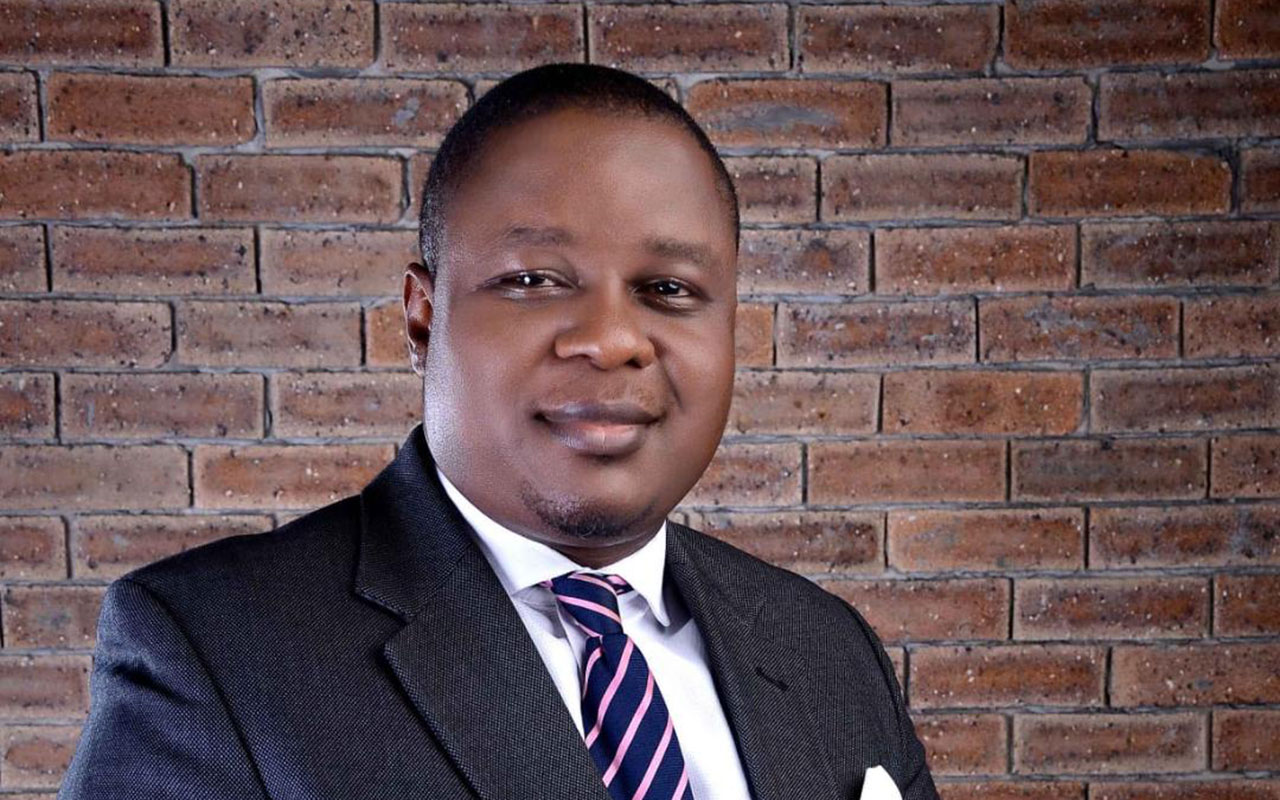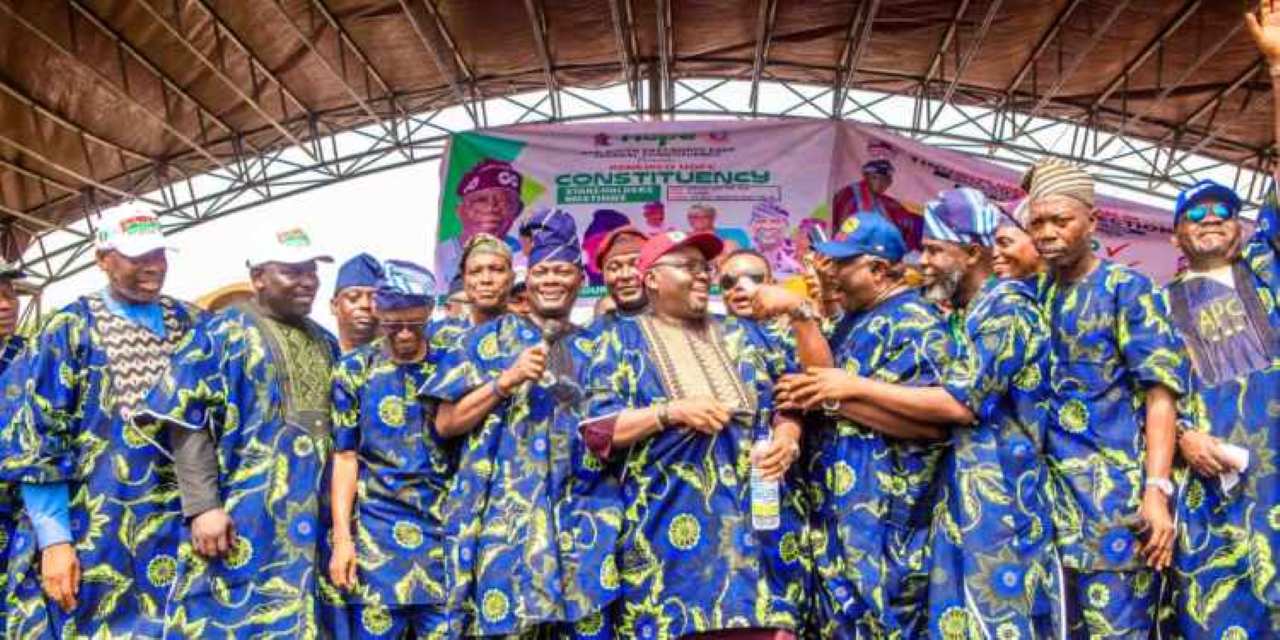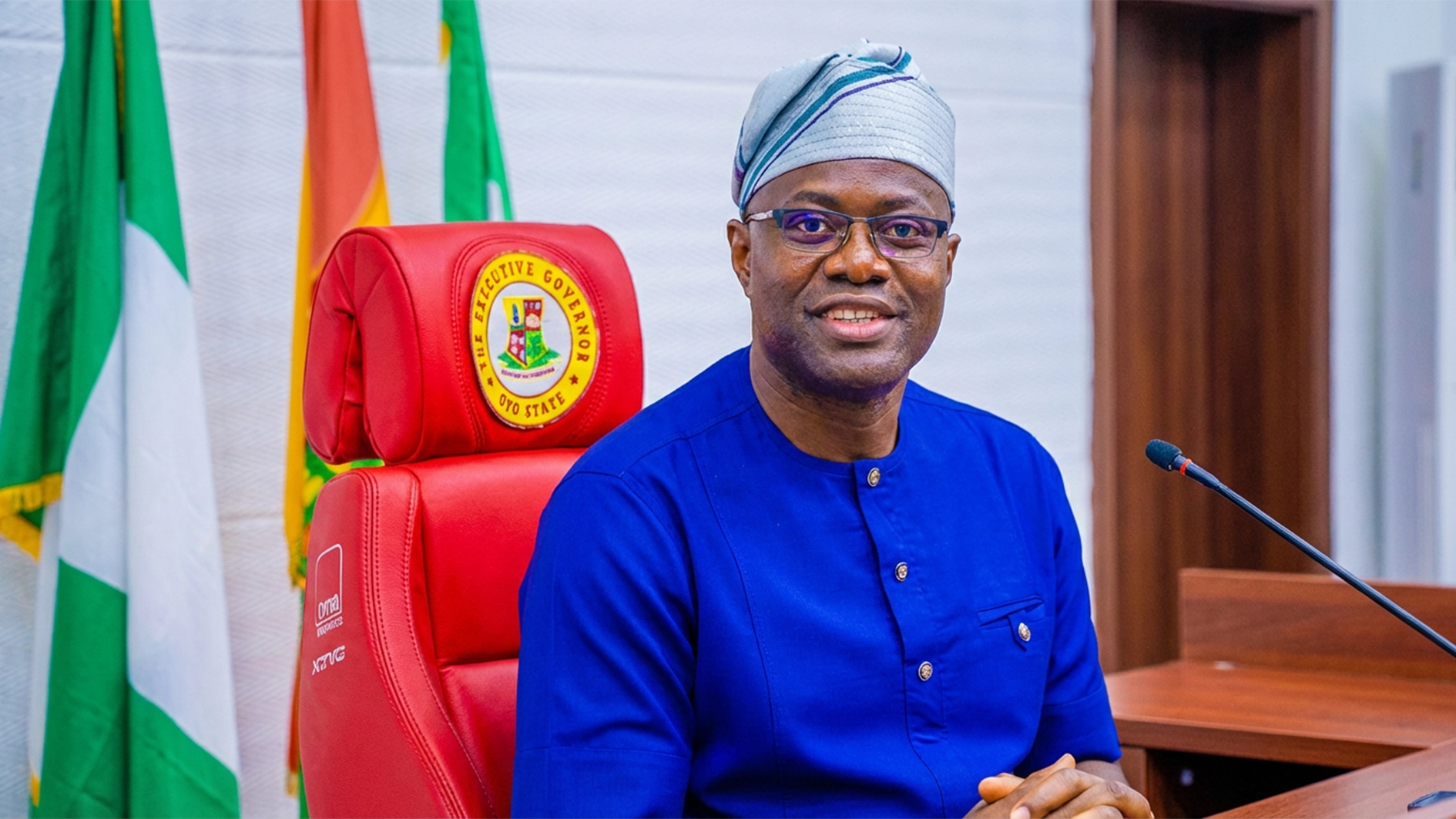 Omoruyi Edoigiawerie is a corporate/commercial attorney with expertise in start-up technology and artificial intelligence (AI). In this interview with TOPE TEMPLER OLAIYA, Edoigiawerie, who is also the Lead Partner at Edoigiawerie and Company (E&C Legal), speaks on the 2024 budget and how Nigeria can move away from a consuming economy to a manufacturing economy, among other burning issues.
Omoruyi Edoigiawerie is a corporate/commercial attorney with expertise in start-up technology and artificial intelligence (AI). In this interview with TOPE TEMPLER OLAIYA, Edoigiawerie, who is also the Lead Partner at Edoigiawerie and Company (E&C Legal), speaks on the 2024 budget and how Nigeria can move away from a consuming economy to a manufacturing economy, among other burning issues.
What is your analysis of the N28.7 trillion 2024 budget recently signed into law by President Bola Tinubu and how will it impact the common man?
I think that it’s a bit too early to talk about the impact on the common man, but more to look at the body language of governance the budget has brought to the fore. Let’s look at the wins and the losses. If you look at the wins, the good thing will be that the recurrent expenditure is reduced, and that capital expenditure, which is what will benefit the common man, has an improvement.
However, there is still a deficit again and the deficit is less than what it was in 2023.This will be the first time that we will have that reduced margin. But what will affect the common man will be an impactful implementation of what the government has said it is going to do. If the government says what it wants to dedicate to education is N10, will that N10 trickle down to the students or teachers in the classroom or will it be lost in the air of bureaucracy, corruption, nepotism and the like? I think that is where we have constantly failed.
The problem with our budgeting in this country has been the implementation. I am happy that the President has set up a Special Unit headed by Hadiza Bala Usman with the primary objective of monitoring and evaluating all the ministries and inter-departmental agencies because from what we can see, the budget office has not been up to speed in impact assessment. The budget is good; it talks of the Renewed Hope Agenda. We are hoping that it will be implemented adequately and for someone in the commercial space, I am excited about the N100 billion stability funds for MSMEs.
What are the implications for small-scale businesses?
If you look at last year from January to October, businesses, small businesses, took loans of N750 billion from banks as survival funds. These were not funds for expansion; they were not funds for market penetration. These were just funds to remain alive, which shows a very serious problem. It is good that the government is plugging into it; N750 billion is not much, but what we should focus on is ensuring that the government puts Nigeria in a position where we can attract proper Foreign Direct Investments (FDIs).
In the last one or two years, the contribution of FDIs to our economy, our GDP, is barely one per cent. For a country like Nigeria, which has over 200 million people, a consumption-based economy is not good because whether we are producing or consuming, we should be able to attract better FDI. The World Bank has said we have three key challenges, which are lack of financial tools to absorb shocks and stress, structural defects and insecurity. These are the key things that are hampering investments and the President has been very outspoken on his push for investments. He has often said: “You know I want to attract investors, Nigeria is open for business.” It is fantastic but he’s got to match his words with action.
If I say my house is available for you and you are excited about coming to my house, then I must ensure that the road you pass to my house is motorable; I must ensure that on your way to my house, they won’t beat you up; I must ensure that when you get to the house it will be conducive enough, that there is light so that you will not be sweating as you are eating. I must also ensure that if you bring things to my house there is security.
Beyond that, Nigeria remains a solid destination because despite these challenges, investors still come in their numbers. Go to the Murtala Mohammed International Airport in Lagos or the NnamdiAzikiwe International Airport in Abuja, and ask for the data of foreign nationals who come into this country daily; you will be shocked. It simply means they see something in this country that we probably are not seeing. Imagine where we create a proper enabling environment for them and how they will rush in.
But in concrete terms, what should the government do to attract FDIs?
When you are looking at attracting investments, you must look at the ease of doing business. Yes, we have the Business Facilitation Act, which tries to streamline the processes for regulation in the start-up ecosystem, where I thrive. I pushed alongside other private sector players for the enactment of the Nigerian Start-up Act that was enacted over a year ago, but the implementation is still slow.
The government must now give the requisite political will and push this legislation.
It must be easy for people to register their businesses with the Corporate Affairs Commission. The CAC in fairness to them has done well; they have streamlined the process of business registration where you can sit on your computer and start the process and finish it. So, that’s good; but that’s just the microcosm of the larger ease of doing business picture.
Our tax issues must be put in clear perspective and we must codify our tax laws. I am happy that the President picked on that because we have a situation where you have an avalanche of taxation unregulated – you pay federal tax and the state comes to you; you pay state tax and the local government comes to you; you pay the local government and the CDA comes to you; you pay CDA and your street comes to you.
There are just too many going on and it’s as if every agency of government looks at taxation as a means of fundraising. Although that is not necessarily bad, when it is unregulated, people would be paying for the same thing under multiple guises and double taxation is not an acceptable practice anywhere in the world.
So, if we want to get money from tax, which is the government’s right, the government must codify the process. I don’t see why we should have more than five to 10 tax laws across the entire country. Revenue must be properly done and whatever revenue that comes from there can be shared across the different strata as against giving a bad free-fall approach to everybody.
I think that it’s very important that these things are put in place to attract investment, to ensure that the budget is adequately implemented, and to ensure that the line items go to the end of the table. Monitoring and evaluation are always the most important part of any process, but unfortunately in this part of the world, it is the most overlooked aspect of projects.
How do we begin to move away from a consuming economy to a manufacturing economy?
What are the indices of manufacturing, and what are the things that aid manufacturing? I will say power, security and liquidity. It is more expensive to produce locally than to import a lot of things. Every manufacturer in this country would cry that they don’t have power; they don’t have access to finance, whereas these are the things that swell growth. They struggle with high-interest rates; they generate their power; they provide their security, which are things that they shouldn’t be thinking about so that they can focus on manufacturing.
Of course, these indices shoot up the cost of production and then you have people whose cost of production is not determined by these factors; all it just costs them is to buy and import and then you are competing with those with that kind of market. It makes it very difficult for you, the local manufacturer, to keep your head above water.
If you look at any successful endeavour that has been produced locally, it has been produced locally because the government backed it up with the political will and shut the door for the importation of similar products. Look at the Dangote cement analogy; it is a clear example, because the government-backed it up by shutting the door on importation to allow the company to produce locally, have access to the mineral resources, and so on, and it worked. What we must also know is that if you want to begin to produce, what are the things we have at our disposal and what is the enabling environment we have created for indigenous people to harness those things. You know there’s so much fixation on crude oil and that has been our biggest albatross because we focus so much on oil and what it is going to give us that we don’t focus on other things.
Nigeria has arable land; we have underutilised mineral resources. I read a report some time ago that gold was found in some parts of the north and that illegal miners were mining it. This belongs to our commonwealth that should come to Nigeria, money that should be part of the FDI, but production is on and going into private pockets. We have to start plugging all the leaks. We have arable land, and Nigeria has over 200,000 kilometres of roads, but only 60,000 kilometres are accessible and motorable; that’s dangerous.
If you want to boost agriculture, you must fix the supply chain; if you don’t fix the supply chain it won’t work. You have farmers in Taraba and Benue states who produce yam and they can’t bring it to Lagos. Fix the roads and make it safe. If the government wants to raise food security, one of the most important things that you need to do is to first fix the connecting factors because Lagos is a hotspot for food but we don’t produce or we produce very little.
Why should there not be a direct rail from Gboko to Lagos or from Kano to Lagos? Note the key spots that farmers cut off these middlemen who are becoming shylocks. You will be able to start breaching the costs and what you have is that few people can tie up that logistics supply because they had challenges. So, if you fix the root, you can open up new markets.
I will use Lagos and Ogun states as a typical example, especially the Ogun State end. If you look at New York and New Jersey, New York is the hub of commercial activities, it is the commercial capital of the U.S., but it’s extremely expensive to live in New York. For a small space, you could pay as much as $5000 or $10,000 a month to stay in a cubicle in New York, but New Jersey is home like Abeokuta.
So, what New York did was to build rail. You don’t need to live in New York because with a functional train system, you can work in New York and live in New Jersey; life is that simple. Why can’t Lagos do that? Why can’t we have that connection with other cities? In Abeokuta, there’s so much underdevelopment while there’s so much overdevelopment in Lagos; the ‘Centre of Excellence’ is imploding.
Today in Lagos, these high-rise buildings are no longer a form of aesthetic value; it is a form of building numbers. The land is full, so let us now start occupying the air. The living quality will continue to degrade if we keep pushing that in the next 10 years. Most buildings we are seeing today will have to go and that’s because other states that should have benefited from the explosion are not doing that.
Aside from FDI, roads and other challenges, Nigeria has one major factor that is making development difficult, which is corruption. What do you think can be done to reduce it?
The problem with corruption in this country is threefold. First, we do not have a social safety net. Why are people corrupt? There are two types of corruption – there’s corruption of greed and corruption of need.
The corruption that is killing this country is not necessarily that of greed, which is where a political office holder steals N100 million and Nigeria still survives. The corruption that is killing us is the corruption of need, which is the corruption by civil servants, the policeman and that person in that small area who needs it to survive because what he earns cannot provide his social benefits.
What are social benefits? Education, healthcare and housing. Why do people in the civil service put their hand into the wrong thing? It is because they want to build their retirement homes, send their children to good schools and be able to afford healthcare in private hospitals.
These things are happening because our public healthcare system has collapsed and there is nothing like housing schemes. To own a house, you must be actively rich. Most working class people do not have their children in public schools. I went to a public school and I know how it was then, but I cannot send any of my children to public schools. Private schools are prohibitively expensive and paying school fees in six figures for children in kindergarten and primary is a dangerous trend. Unfortunately, these are the things that breed the ‘corruption of need’.
God forbid that any of us will fall sick; that’s when you would understand the challenges we have in our healthcare industry. Until we fix these challenges, we will continue to go around in circles. If I know that my job can give me a living wage, public education is qualitative, healthcare is affordable and accessible, why do I need to steal? If I know that 35 years after retirement I can afford a decent home from my salary, why do I need to steal? It is because these factors are out of my reach; that is why I have to dip my hands into things I shouldn’t dip my hands into. So, until we fix a social safety net for our country, we will continue to have this corruption challenge.
The second is the cost of electioneering. Do you know what it takes to become President of Nigeria or to become a governor, a member of the state or National Assembly or even a local government chairman? Whatever millions or billions they spend to get there must be recouped.
Someone cannot love Nigeria and spend N10 billion to come into office and sit down; because they did not just donate the money to the government. Those are the questions that we must now begin to ask. If you don’t fix them, if people spend so much to get into power, they must recoup their money. So, until that is done, we will continue to have to have that challenge.






